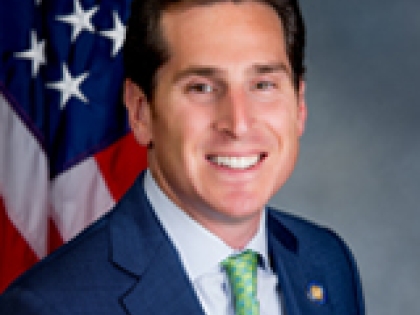
Manafort indicted in New York state, charges that fall outside Trump’s pardon power
President Trump’s former campaign chairman Paul Manafort was indicted Wednesday by a state grand jury in New York on charges of residential mortgage fraud — the announcement coming just minutes after Manafort was sentenced in federal court in Washington to more than seven years in prison.
The charges filed against Manafort may stand as a kind of prosecutorial insurance policy against a possible presidential pardon — a scenario Trump has refused to discuss as Manafort’s case worked its way through the federal court system. The president has called Manafort brave for fighting his case against special counsel Robert S. Mueller III, who is investigating Russian interference in the 2016 election.
“No one is beyond the law in New York,” Manhattan District Attorney Cyrus R. Vance Jr. said in a statement announcing the indictment. “Following an investigation commenced by our office in March 2017, a Manhattan grand jury has charged Mr. Manafort with state criminal violations which strike at the heart of New York’s sovereign interests, including the integrity of our residential mortgage market.”
A spokesman for Manafort did not immediately comment on the new charges.
Asked Wednesday whether he intends to pardon Manafort, Trump said: “I have not given it even a thought, as of this moment. It’s not something that’s right now on my mind. I do feel badly for Paul Manafort, that I can tell you.”
The president also said he was unaware of the Manhattan district attorney’s indictment.
Under the Constitution, presidents have wide authority to pardon, but that power applies only to federal convictions, not state cases.
New York State Attorney General Letitia James has urged the legislature to fix what Democrats call a “double-jeopardy loophole” in state law that could negate New York’s ability to prosecute anyone pardoned by the president.
State law protects people from repeat prosecutions for the same alleged crimes and does not make an exception for instances where a pardon has been granted by the president.
New York lawmakers were working this week to undo the pardon loophole. The Democratic state senator sponsoring the legislation, Todd Kaminsky, said he expected the new law would be enacted “in the very near future.” He and other officials presented the outline of a deal Tuesday.
“Every day that we don’t act is another day that the double jeopardy rule is in place for New York,” said Kaminsky, a former federal prosecutor.
Kaminsky said that, if Manafort is pardoned, he would expect defense lawyers to argue he could not be charged by the state because the double jeopardy rule was still in place at the time of the indictment.
[Paul Manafort sentenced to a total of 7.5 years in prison for conspiracy, fraud]
The state charges could be challenged in the courts as a violation of double jeopardy protections for defendants, an area in which current New York law may favor Manafort.
Arun Rao, a former federal prosecutor and assistant district attorney in Manhattan, said he thought the new state charges were carefully crafted to avoid any double jeopardy problems.
“In the event Mr. Manafort ultimately evades federal justice by virtue of a politically expedient pardon, he may still be held accountable for violations of New York state law,” Rao said.
The mortgage fraud charges stem from the same conduct that led to Manafort’s federal conviction — that he allegedly submitted false information to banks while seeking loans. The 16-count indictment accuses him of residential mortgage fraud, attempted residential mortgage fraud, falsifying business records, scheming to defraud and conspiracy.
The new state charges may draw criticism as politicizing a prosecutor’s authority, in what may be an effort by Vance to deter a pardon for Manafort. Depending on the case’s facts and the particular laws in question, state and federal prosecutors can, though, bring separate cases for the same offenses without implicating double jeopardy concerns.
The state charges, for example, reference an email in which Manafort tells someone they need to be at his Howard Street property, so it appears they live there. It was revealed at Manafort’s trial in federal court in Virginia that he had told a lender his daughter and son-in-law were living at the condo, when in fact it was used as a rental.
The state charges also reference Manafort’s asking someone to sign a letter indicating Manafort had let them use his credit card to buy baseball season tickets. It was revealed at Manafort’s trial in Virginia that he had asked his longtime deputy, Rick Gates, to say he had incurred the debt, when in fact Manafort was the one to purchase the tickets.
Manafort’s federal case was split in two — one in Virginia, where he was convicted at trial, and another in the District of Columbia, where he pleaded guilty. Manafort hid millions of dollars in income in overseas accounts, cheating on his taxes. When his clients in Ukraine’s government were forced out of office and stopped paying him, Manafort engaged in fraudulent loan schemes to maintain his lavish lifestyle.
